Back from the Future: a trip comic from a cult director and a digital monograph from a composer
- Статьи
- Culture
- Back from the Future: a trip comic from a cult director and a digital monograph from a composer
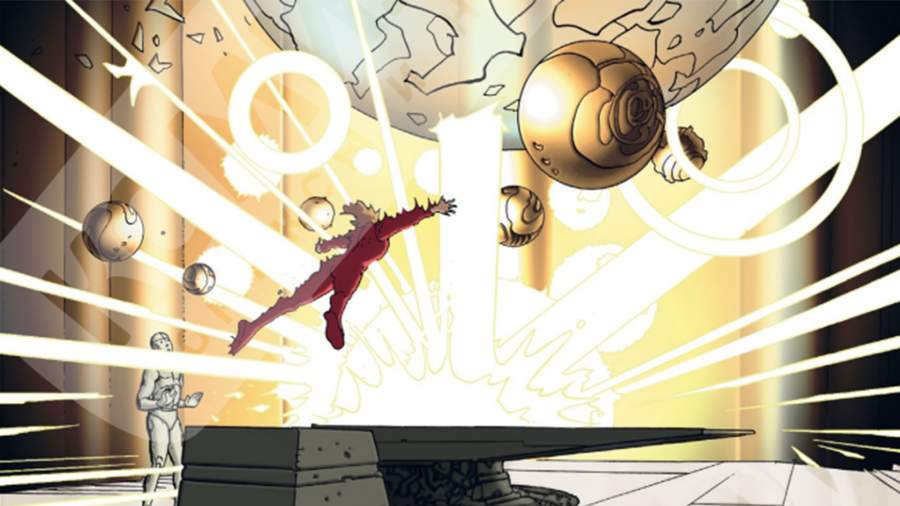
One hundred years after the first edition, Delluc's "Photogeny" is translated anew and released with detailed commentary and illustrations. The first comprehensive monograph on the like-minded artist Malevich and Khlebnikov was written. The myths of Ancient Greece have acquired a new sound, accessible to the modern ear. Alejandro Chodorovski and Mebius' comic strip is now entirely available to the Russian reader. And only Robert Sapolsky persists in saying that we understand everything wrong, that there is no freedom, but rather a readable predetermination. "Izvestia" chose the main books of December, which help to summarize the year and relate them to eternal subjects and problems.
"Everything is decided: life without free will"
Robert Sapolsky
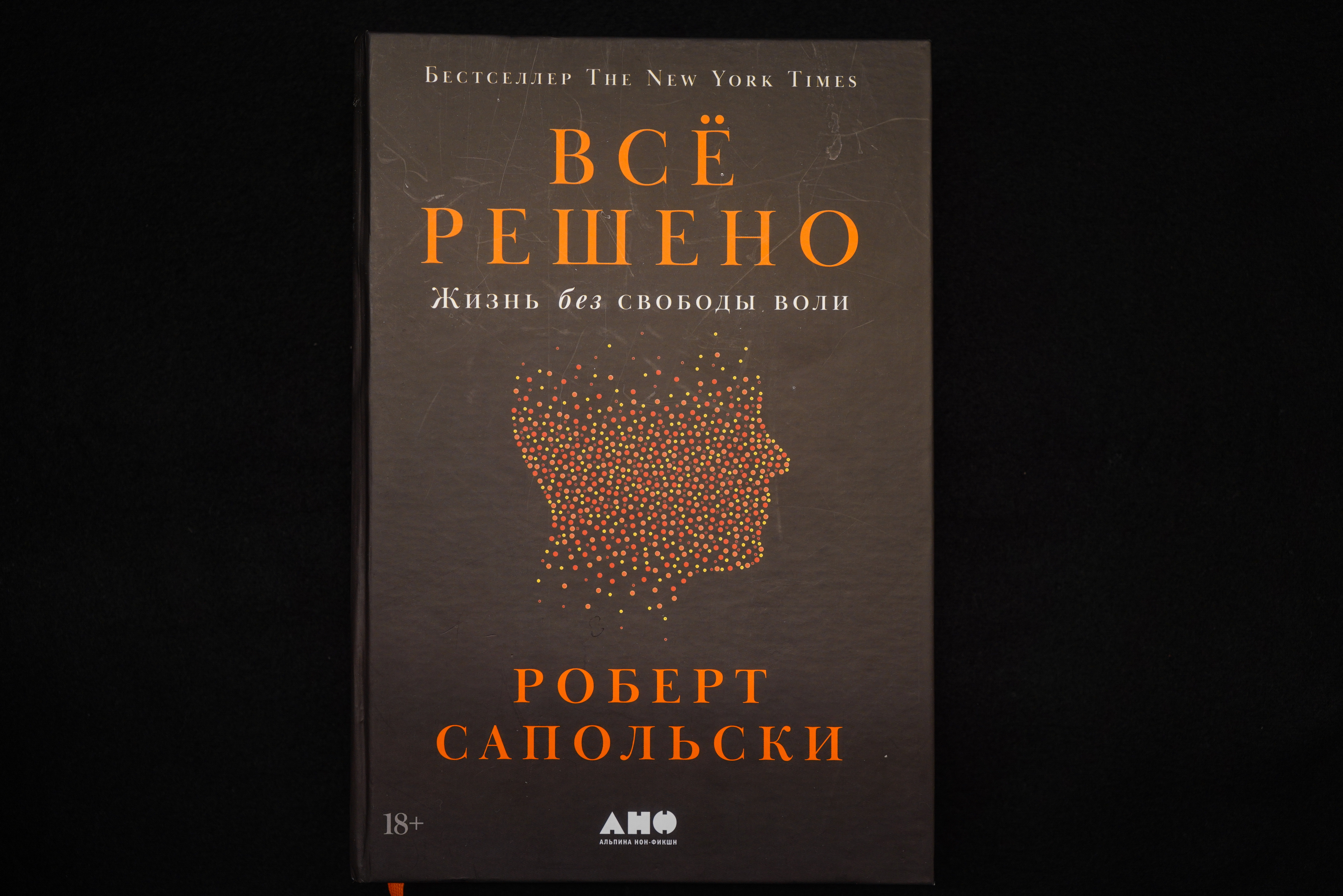
Usually Americans write simply, especially non-fiction with titles like this. Sapolsky is hard to read. "All these bifurcating systems create fractals: their relative degree of complexity is constant and does not depend on the degree of approximation" - a book that by its entire appearance and volume promises that we are about to have a pleasant evening is written in phrases like these. Sapolsky so scrupulously proves that all processes in us, including free will, are the result of the influence of a million different factors on our consciousness that it is impossible to keep it all in your head. Moreover, even to simply follow Sapolsky's thought, one must either bravely trust his chain of reasoning or spend months, if not years, to check his calculations.
The whole polemical pathos of the book duplicates Leo Tolstoy's reflections in War and Peace, where the author proves in a much simpler way, but with approximately the same intents, that not only Napoleon could not lead his troops somewhere, but even one company cannot be forced to march in any direction. But neither can it march where it eventually marches to. We remember all this from high school, although Sapolsky's research seems more scientific and less speculative. Far more important is the goal that Sapolsky ultimately pursues: to change society so that a person is not punished for "crimes", but to take into account that it was not entirely his free choice. That is, Sapolsky opposes the apologia of freedom in Christianity by revisiting the commandment not to judge, he just goes about it in a different way.
"Photogeny."
Louis Delluc
A hundred years ago, Louis Delluc's book was published in the USSR and immediately became a must-read for anyone who was involved in filmmaking or who had read anything about it at all. It is not a theoretical study, but a collection of essays overflowing with nimdropping and references to works that modern readers are hardly familiar with. Some of the essays are as short as half a page, some stretch to three or four. But for the most part these thoughts are on various occasions. For example, the author's indignation at the fact that in France there are no normal comedies and no one to make them, or simply listing those blue-eyed artists who look great in the frame, but they are rarely filmed.
The main function of this book is to stimulate the mind, to create creative restlessness, to make us see filmmaking differently than we are used to. Passion is more important here than thought, and this is exactly what is emphasized by critic Alexei Gusev, who participated in the new translation of Delluc's book, wrote a very emotional preface and made the commentary on the texts so extensive that the book almost doubled in size, although this was largely due to the large number of illustrations. Today, inspiration sometimes seems to have disappeared from movies. Delluc helps it to return, although what is this very photogeny (although we are talking more about movie genius), the author here will never tell us.
"Mikhail Matyushin. Bayach of the future."
Sergey Uvarov
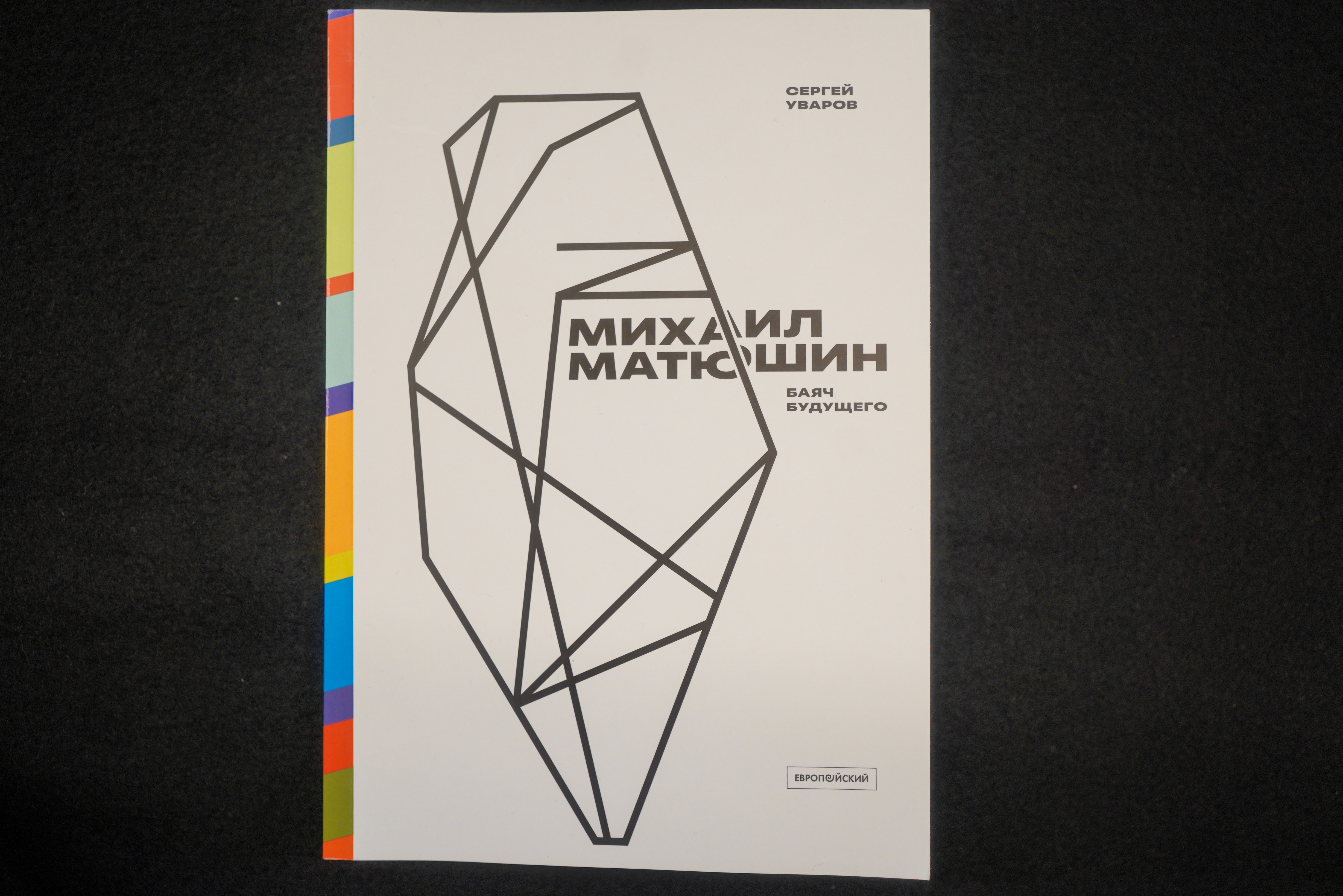
The name of Mikhail Matyushin is not known to everyone, and not a single monograph about him has not yet been published. Sergey Uvarov wrote the first one. Meanwhile, there is reason to believe that if it were not for Matyushin, Malevich's "Black Square" might not have appeared, because as a project it appeared to the artist when he was working on the design of Matyushin's opera "Victory over the Sun" on the libretto by Alexei Kruchenykh. Velimir Khlebnikov wrote part of the text for the opera, and probably would have written more had he not gone for a swim on a hot day and ended up without the money he needed to come to Matyushin and finalize the text.
Matyushin is flesh and flesh of the Silver Age, a composer, musician, artist and "vedatel". A man who, with his next wife, could summon the spirit of his deceased wife to find out how she was doing in the other world. He taught his students to paint a landscape with their backs to it, and also practiced "extended viewing" of 180 degrees at once and explained under what conditions a person could and should become an antenna.
Like Matyushin, Sergei Uvarov is a man of universal gifts. He is an art historian, film director, music critic, journalist, essayist, curator, and scholar. Taking up Matyushin, Uvarov has restored and performed the opera Victory over the Sun, including numbers considered lost, published this opera in a separate edition, and now he has also published a generalizing monograph on Matyushin.
This is a text where anecdotes about events of a century ago are juxtaposed with a complex, for professionals, analysis of Matyushin's legacy, and a substantial part of the material is modestly reported as being published for the first time. And there is also a lot of cuar-codes on the pages, which turns the edition into a multimedia center with "paths" leading to all ends of the world.
"Gods and Mortals: A Modern Reading of the Myths of Ancient Greece."
Sarah Isles-Johnston
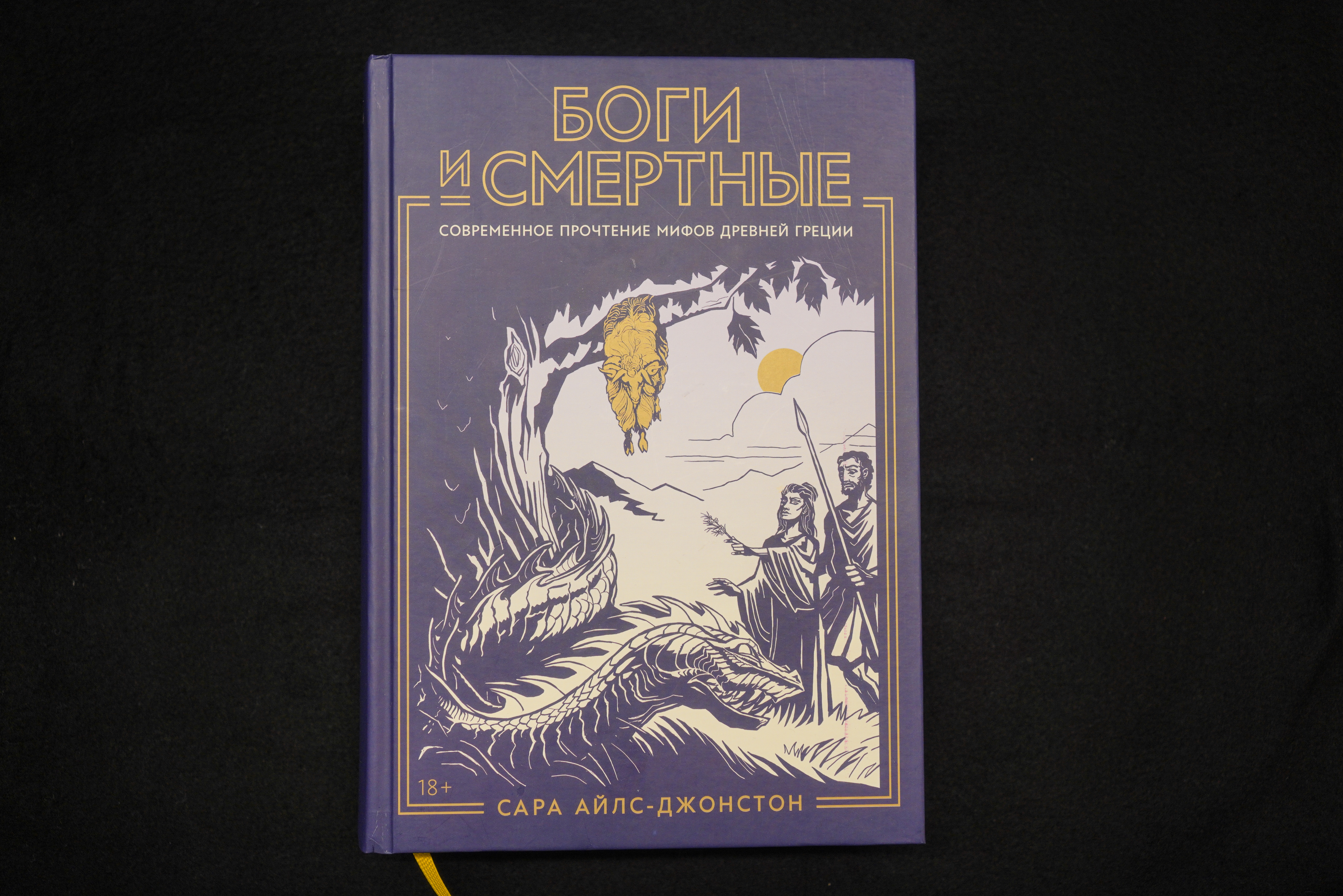
"My dear Perseus, I didn't expect a horse from you - you promised me something more interesting after all! So what when you go to get me the head of the gorgon Medusa?" There is hardly a home where Nicholas Kuhn's book "Legends and Myths of Ancient Greece" is not on the shelf. It is written concisely and accurately, but, for example, it is not read to a child, and not every adult can cope today with this relatively dry presentation. Sara Ailes-Johnston, an employee of the Ohio State University, has been studying ancient mythology all her life and has also published relatively dryly written scientific works. We don't know who or what persuaded her to soften her tone, but last year she published the first comprehensive account of Greek myths in the U.S. in accessible language for the widest possible audience. Now this book has appeared in Russia.
Perhaps it is high time. Antiquity is now in vogue, and although everyone thinks of the Roman Empire, everything is fine with Greece: recently rattled screen adaptation of "Artemis Fowl", Liam Neeson and Rafe Fiennes play Zeus and Hades in screamingly bright blockbusters, in all Moscow theaters go antique dramas. But few people can tell you exactly what really happened in the myths, who gave birth to whom, with what tricks and how gods differ from demigods. This edition solves the problem. Sarah Isles-Johnston tries to present so lucidly, as if she were retelling a book she had just read to a fellow traveler in a compartment. At first it is unusual, but the distrust is quickly overcome, and eventually Gods and Mortals will become a board book for many. And at the same time help organize the Homeric epic in your head.
"Final Incal"
Alejandro Chodorowski, Ladron, Mebius.
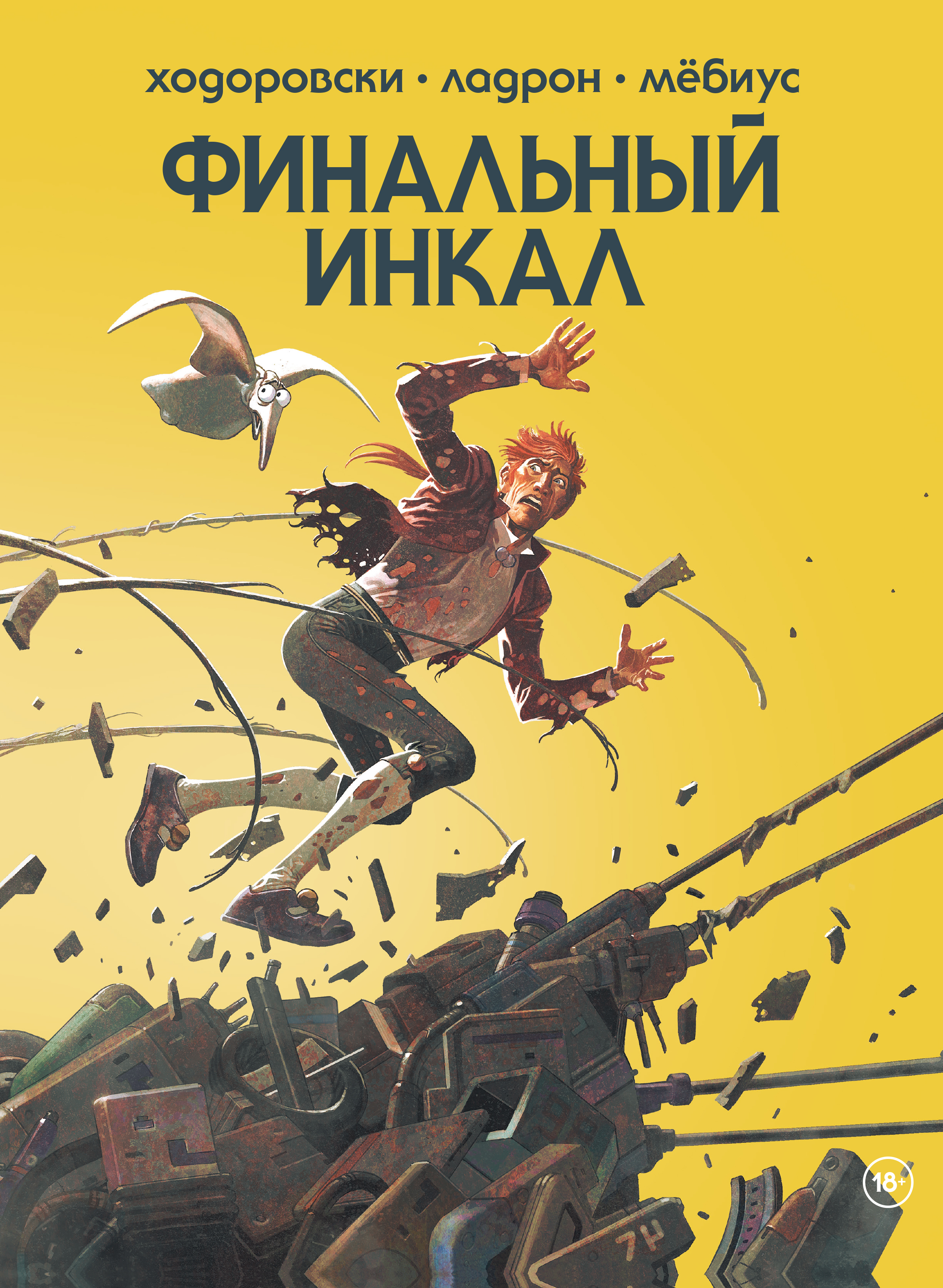
Chodorovski is a figure in every sense cult. In general, even the birth of the concept of "cult movie" is associated with his picture "The Mole", although Chodorowski has many other great pictures: "Fando and the Fox", "The Holy Mountain", "Holy Blood". It is a special pleasure to follow the video blog of 96-year-old Chodorowski, who still moves exclusively with a dancing gait, smiles dazzlingly in a way that only he can, and advises everyone on tarotology.
In pop culture, Chodorowsky is known for his megalomaniacal Dune adaptation project. The legend goes from mouth to mouth about how bad American producers first screwed up the production, and then the whole Western cinema dragged out of this project the developments for "Star Wars", "Terminator", "Alien", "Robocop", "The Fifth Element" and anything else.
Far fewer people know that Chodorowsky has also put these designs into action, but in the form of a comic book that he has been making with artist Mebius for decades. This comic book was released in Russia only a few years ago, actually "Incal" and its prequel, and now it has come to the third and last part.
The plot about the adventures of private detective John Difool in a fictional grotesque universe here reaches a point where full psychedelic begins: the fragmentation of realities and the identity of Difool, who is looking for his lover to save the universe. This, of course, is not a story, but a trip, masterfully invented and drawn in the smallest details, not bothering to explain, but so vivid and enchanting that it is as if the magic of Chodorowsky's best films is pouring down on us from these glossy pages. And there comes a complete and irrevocable happiness, from which you can't just get out.
Переведено сервисом «Яндекс Переводчик»
